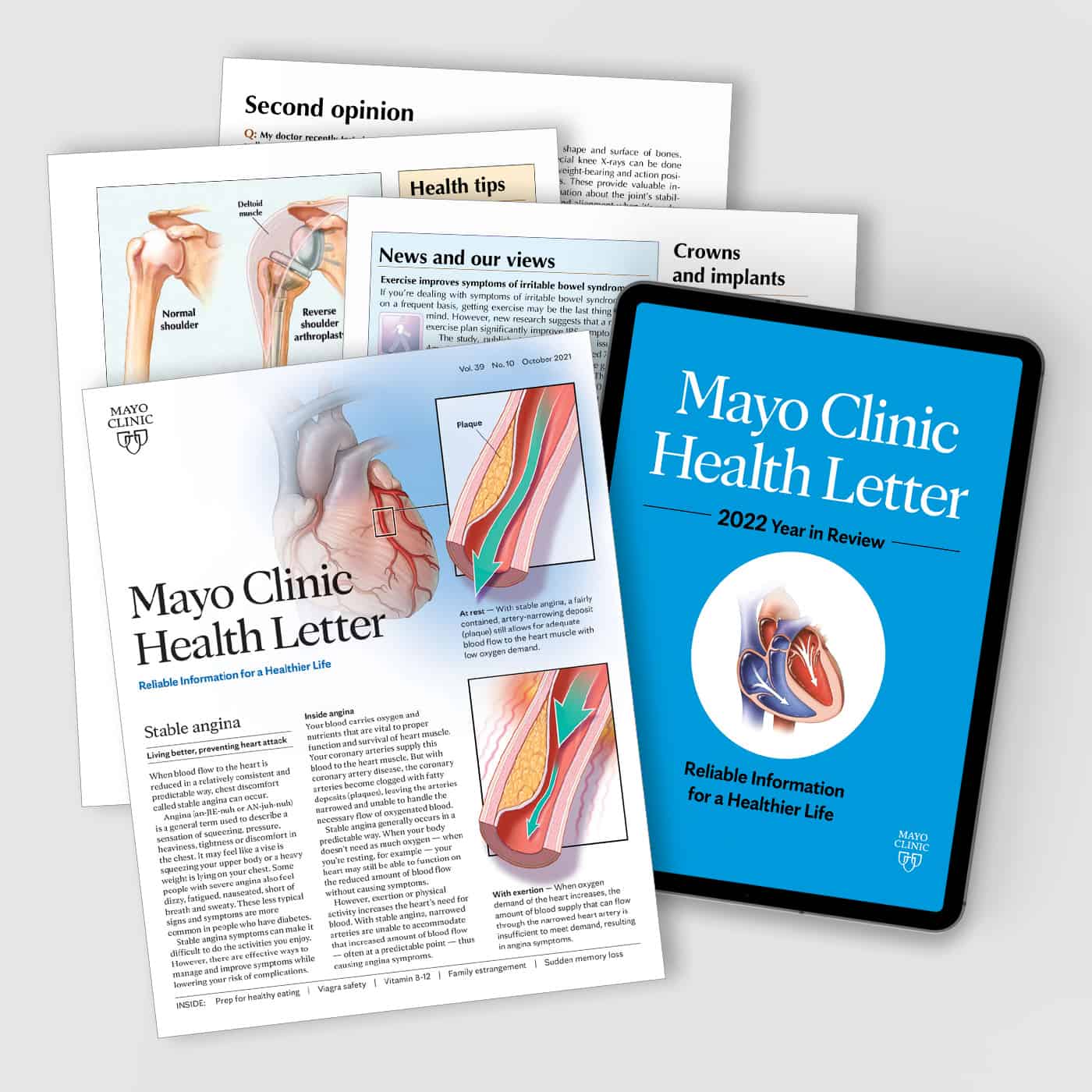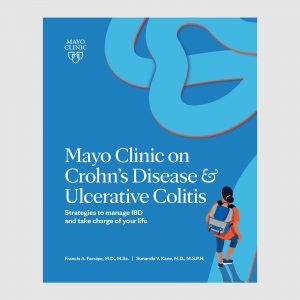
Are you taking or considering taking weight-loss medication? If so, it’s important to understand your options, possible side effects and how to use the medication safely. These topics are discussed in the following excerpt from the Mayo Clinic Diet: Weight-Loss Medications Edition, by Donald D. Hensrud, M.D., M.P.H., Andres J. Acosta, M.D., Ph.D., and Tara M. Schmidt, M.Ed., RDN. Weight-loss medications help decrease appetite, but it’s also important to make lifestyle changes to get the best results. Read more for a fuller picture of how best to lose weight, as discussed in detail by Mayo Clinic experts.
Using medications safely
Prescription weight-loss medications are just one part of a comprehensive weight management plan.
Before today’s weight-loss drugs were approved by the Food and Drug Administration (FDA), all were tested in clinical studies. These studies included lifestyle interventions in addition to medications. Participants in these medication studies were advised to follow a calorie-reduced eating plan and an exercise program. So, if you want to achieve the same results shown in these studies, it’s vital to make healthy lifestyle changes a part of your treatment plan, even as you’re using a weight-loss medication.
Most weight-loss medications reduce appetite and increase feelings of fullness. They’re not miracle fat-burning or metabolism-boosting drugs like some advertisements or individuals may have you believe. Building healthy habits is important because these habits will allow the medications to work better, both in the short term and long term.
Think of it this way: These drugs are no different from drugs you might take for chronic diseases such as high blood pressure or diabetes. They work best in conjunction with lifestyle changes such as reducing your intake of processed foods and increasing your activity level. Steps you take in addition to taking the drugs can either support or delay your results.
Here is one example of why a change in habits is important, which you’ll learn more about later in this book. Weight loss generally involves the loss of both fat and lean muscle tissue. When muscle mass is lost, your metabolism slows down, making it harder for you to continue to lose weight or maintain a lower weight. Getting enough protein each day as part of a healthy diet and performing strength-training exercises will help to minimize loss of muscle so that you can maintain a well-firing metabolism.
Finally, don’t forget that for various reasons some people need to go off the drugs. If that happens, you’ll be much more likely to maintain the weight you’ve lost if you’ve already established healthy habits.
Initial weight loss
During the first few weeks of taking a weight-loss drug, a rapid drop in weight is common. This is likely due to a significant decrease in calorie intake, coupled with a loss of water weight.
When you take medications, you typically don’t feel like eating as much as you would otherwise. And when you consume fewer calories, your body releases stored energy in the form of glycogen, a type of sugar (glucose) stored in your muscles and liver. Because glycogen is partly water, when your body burns it for energy, you also lose water, and thus weight. This effect is temporary. Incidentally, this initial period is also when medication side effects are most bothersome.
The risk of losing a lot of weight very quickly is that you may not lose as much fat as you would like. Instead, you’re losing water weight and lean muscle tissue. Loss of muscle tissue can make it harder to maintain weight loss in the long term. In addition, rapid weight loss can also result in poor nutrition and side effects such as hair loss.
Although it’s OK to see rapid weight loss initially, the goal is to eventually move to a slower, more stable process — 1 to 2 pounds a week. While a rate of 1 to 2 pounds a week sounds slow, losing 1 to 2 pounds of pure fat requires burning thousands of calories more than the calories you eat every day. This kind of large calorie deficit isn’t always easy to achieve or sustain. The strategies in this book are designed to help you lose weight slowly, in a way that is healthy and sustainable.
Aim for a minimum of 1,200 calories per day, although you may be struggling to eat this much food due to the initial side effects of your medication. Choose foods that are nutrient dense and easy to consume — smoothies and Greek yogurt, for example.
When taking weight-loss medications as part of your diet plan, work with a medical professional to help ensure you’re losing weight at a healthy rate, and you’re losing more fat than you are water or muscle tissue.
If you’re experiencing severe side effects that are preventing you from eating or drinking, reach out to your health care team. Health care professionals can provide guidance, support, and potential solutions to address these issues and help you optimize your treatment plan.
Here are some tips to help ensure you’re losing weight in a healthy and sustainable way:
- Eat regular, portioned meals.
- Include a protein-rich food at each main meal. Choose from fish, beans, tofu, eggs, poultry, lean meat or reduced-fat dairy.
- If you have a poor appetite, make sure your meals are packed with nutrients. Try drinking smoothies or eating grains with a protein.
- Do regular strength training to reduce body fat and retain muscle mass.
If you’re using the Mayo Clinic Diet digital platform, follow the meal plan that’s been personalized for you and take advantage of the recipes and exercise videos provided on the platform.
Managing common side effects
As with most medications, weight-loss drugs may come with side effects. Many of the effects are mild and temporary. It’s common for these concerns to improve with time as your body adjusts to changes in your diet, how much food you eat and your calorie levels. It may take from a few days to a few weeks to begin to see a reduction in symptoms.
You can avoid or minimize many common side effects by working with your health care team to ensure that you take the correct dose of the medication, are eating a well-balanced diet and drinking enough water. If you’re using the Mayo Clinic Diet digital platform, you can find tips, recipes and meal plans there created specifically for people who are taking prescription weight-loss drugs.
An excerpt from The Mayo Clinic Diet: Weight-Loss Medications Edition A healthy-eating and prescription medicine program to help you lose excess pounds by Donald D. Hensrud, M.D., M.P.H., Andres J. Acosta, M.D., Ph.D., and Tara M. Schmidt, M.Ed., RDN.

Relevant reading
Health Letter Subscriptions
Get direct access to the knowledge, wisdom, advice and practical information on healthy living from Mayo Clinic, one of the world's foremost health authorities. Your subscription includes twelve monthly 8-page issues and four Special Reports. Each 8-page issue of the Mayo Clinic Health Letter is filled with full-color medical illustrations,…



















